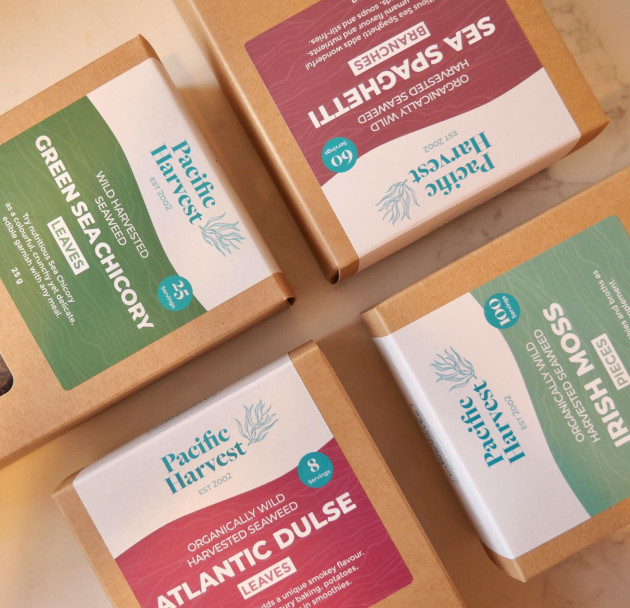The latest campaign promoting New Zealand’s environmentally conscious and ethically manufactured food and wine – Made with Care – also showcases the sector’s commitment to sustainable packaging. Kim Berry writes.
Tom & Luke
Snack food company Tom & Luke is certified net carbon zero by Toitū Envirocare, and its packaging is 100 per cent recyclable.
At Tom & Luke, #5 polypropylene is used for the tubs and HPDE mono layered pouches to make packaging as recyclable as it can be.
Co-founders Luke Cooper and Tom Dorman say the packaging chosen was because of the infrastructure investment and technology advances in flexible recycling, and where they feel the industry is progressing.

“We decided to use and align with advancements in mechanical and chemical recycling, which are fast approaching the packaging space,” Cooper says.
Cooper is regarded as an industry leader on sustainability. He is on the Sustainability Advisory Board for both the New Zealand and Australian Food and Grocery Councils (NZFGC, AFGC), chair of the Compostables Sub-committee for NZFGC, and part of the steering committee for the AFGC’s National Plastics Recycling Scheme.
New Zealand Trade & Enterprise’s (NZTE) Made with Care campaign celebrates more than 40 food and beverage brands’ ethical and sustainable credentials across their operations.
NZTE’s Australia Pacific regional director Glen Murphy says the initiative reinforces values unique to New Zealand’s food and beverage industry, originating from its Māori culture.
“These values include Kaitiakitanga (protecting and caring for people, place, and planet for future generations), Manaakitanga (caring for others and showing hospitality, kindness and respect) and ingenuity,” Murphy says.
Murphy says the country knows its reputation for premium quality food and wine is not just about flavour.
“New Zealand is beloved for its lush, green pastures, fertile soil, and cool, clear waters. It is an environment that fosters outstanding, great-tasting, and nutritious food and drink from a place you can trust.
“We have a responsibility to ethically create and sustainably produce food and beverages in a way that nurtures and protects the world around us,” Murphy says.
Pacific Harvest
Pacific Harvest overhauled all packaging of its seaweed range in 2020. Previously products were offered in plastic sachets or jars which were not recyclable.

Seaweeds are hygroscopic (absorb moisture from the atmosphere) so a compostable solution was not deemed sufficient from a food safety perspective. They opted for a recyclable plastic rather than glass, due to glass’s heavier weight, and therefore carbon footprint.
The plastic content per bag/jar was reduced by 40 per cent, and removal of zips in bags reduced plastic content a further 15 per cent.
The range is now offered in fully recyclable plastic jars or bags. Bags are enclosed in cardboard boxes which can be fed to worm farms or processed through kerbside recycling.
Six Barrel Soda
Celebrating its 10-year anniversary, soda syrup company SixBarrel Soda has maintained a commitment to low waste, sustainably produced and delicious products since it began.
Syrups are manufactured in small batches, packaged in recyclable glass bottles and shipped in fully recyclable cardboardboxes. The company also sources local and organic ingredients wherever possible.
Since Six Barrel’s launch, the syrup maker has saved around five million 300 millilitre plastic bottles, or more than one million 1.5litre plastic bottles from landfill.

Ōra King Salmon
Ōra King says it is focused on sustainability at all levels of operations and is committed to being a proactive force in the seafood industry. It has undergone a complete overhaul of its packaging, using the latest technologies to drive positive change for customers, company and environment.

Lids are now 100 per cent recyclable, saving potentially 80 tonnes of packaging going to landfill annually. The wood fibres used in cartons are a mix of new and recycled materials from environmentally credible and controlled sources.
Dan bands have been replaced with L clippers, significantly reducing Ōra King’s plastic footprint, and in the process of reducing liner bags, the company has saved roughly 6764 kilograms of plastic per year. Ōra King has also completed a trial to convert Gel Pads to Nice Ice packs – a soft plastics recyclable casing with 100 per cent water infill.
The Crafty Weka Bar
CEO of The Crafty Weka Bar, David Dunn says sustainability has always been at the forefront of the company’s values and proven through products that are good for you and kind to the environment.
“It is about being proactive to save the future of the planet, small steps in the right direction are better than not beginning the walk at all,” Dunn says.

Crafty Weka Bars packaging is 100 per cent home compostable, biodegradable and recyclable, with the bars inside in a bio-cellulose wrapper and packed in a compostable card box.
“ It is about being proactive to save the future of the planet, small steps in the right direction are better than not beginning the walk at all.”
This article first appeared in the July edition of Food & Drink Business magazine.




